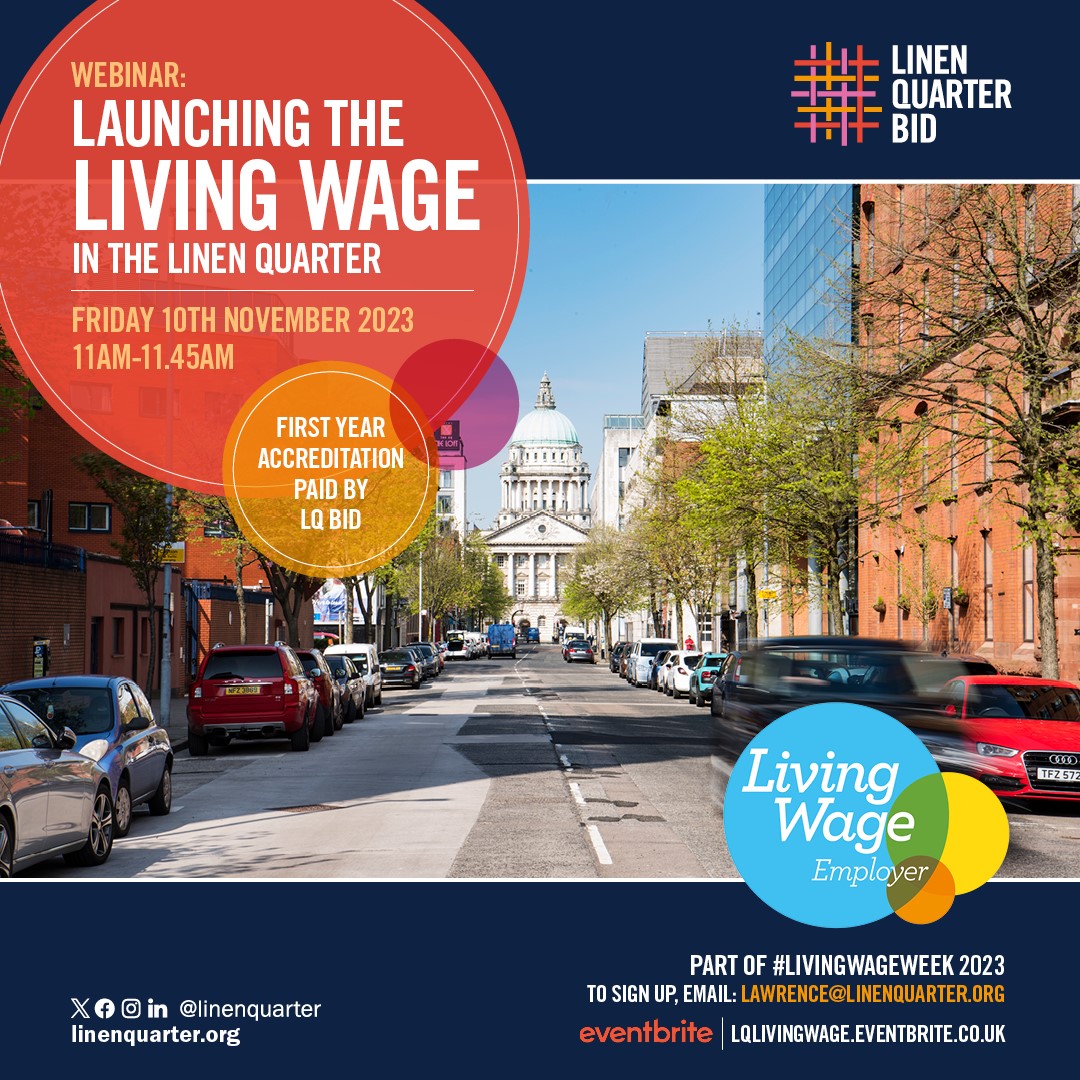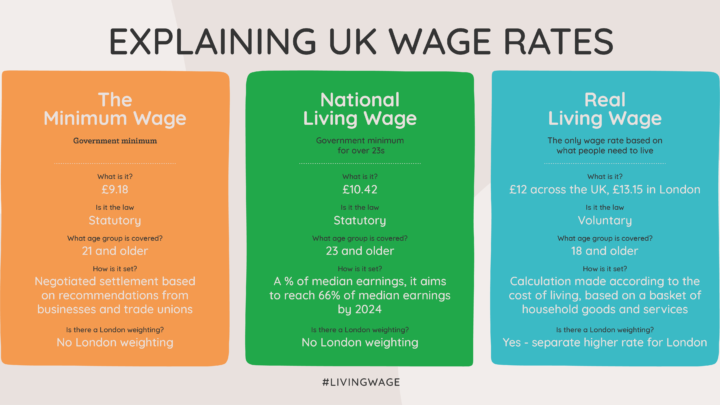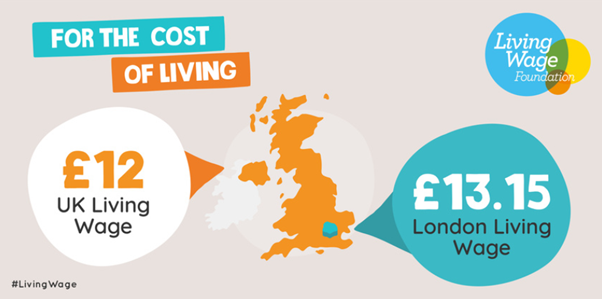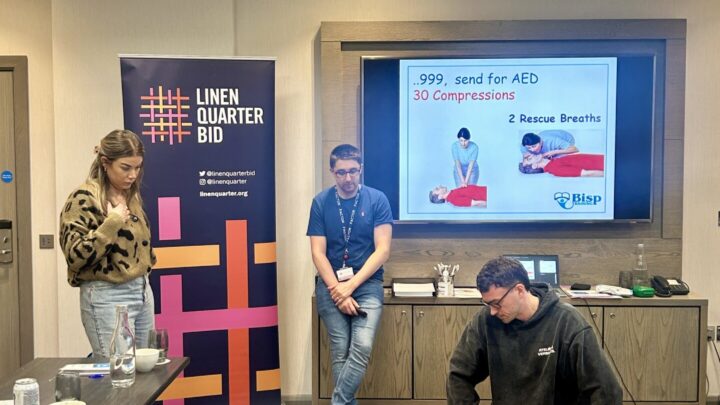News / 30th October 2023
Beyond Minimum – The Power of Living Wage
Minimum Wage Vs. Real Living Wage
These two terms may sound similar, but both have different concepts and implications. Over 170 countries have minimum wages, which means they have set a minimum threshold in law that workers must be paid.
However, Minimum wage is only starter pack, there is no guarantee a minimum wage will be based on the actual cost of a reasonable standard of living. As costs like housing and healthcare costs are not static, minimum wages often cannot keep up.
In the UK for example, which has a minimum wage, and a government set ‘national living wage,’ a whopping 14.3 million people continue to live in relative poverty.
That’s where the Living Wage Initiative comes in. It advocates for a ‘Real Living Wage’ which is about thriving, not just surviving. This is an income that allows workers to live decently. It considers what constitutes a decent life as the basis of fairness. Actual living wages consider housing costs, food prices, utility expenses, and healthcare. It varies with time and location and is frequently reviewed by The Living Wage Foundation, not the Government.
Why The Real Living Wage Matters
The wage gap between minimum wage and real living wage: what’s the real deal? Well, it’s a gap that affects real people. People and families struggle to make ends meet when the minimum wage falls short. They might have to work multiple jobs and sacrifice quality time with loved ones. One might forgo educational activities, too.
Providing a living wage bridges the gap. People can invest in their futures, contribute more to communities, and breathe a little easier.
Linen Quarter BID has recently become a Living Wage Accredited Employer, and we can support you to become a Real Living Wage Employer too, by paying for the first year of your Living Wage Employer Accreditation. Here’s a few key benefits of becoming a living wage employer:
- Reduced Employee Turnover:
Paying a living wage doesn’t just benefit employees; it’s a smart business move. Keeping your workers satisfied reduces turnover. Oxford Economics and Unum found that turnover costs average £30,614 for employees earning £25,000 or more.
- Improved Staff Well-Being & Absences:
Our health and relationships can be negatively affected by financial stress, which is one of the leading contributors to mental poor health in Northern Ireland. Fairer compensation can help staff overcome financial stress and so can lead to less absences from work.
- Increased Productivity:
Workers who feel fairly compensated for their job often witness a boost to their morale, engagement and productivity. Simply put, less financial stress = more focus.
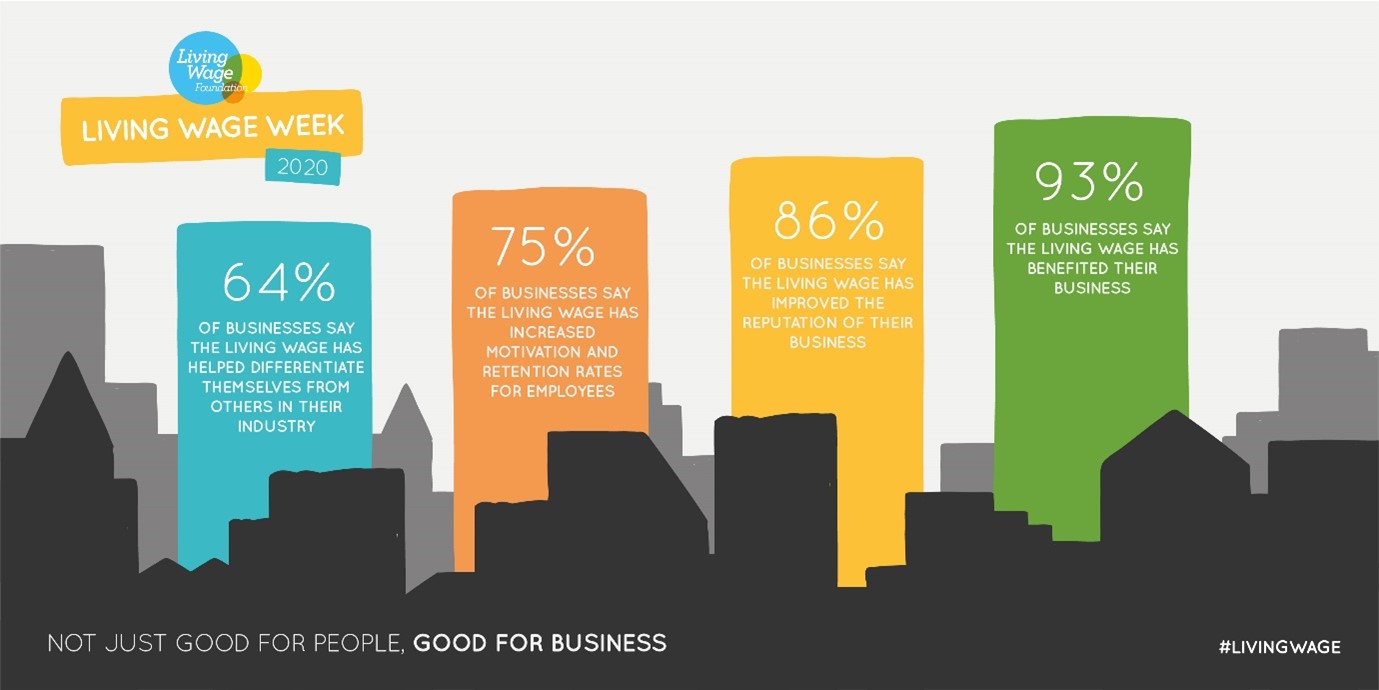
Fair and Just Tomorrow: How LQ BID Can Help?
Living wage isn’t just a number – it’s a principle that uplifts entire communities. Living wage commitments are increasing among companies. However, we must do more if we are to become NI’s first sustainable district.
LQ BID have recently become accredited as a Living Wage Employer, and we are committed to supporting businesses to adopt a living wage.
The first in Northern Ireland, LQ BID will support our network on their Real Living Wage Journey. We will cover our member’s first year of living wage accreditation fee for charities and public sector, and for private organisations with up to 500 employees from the Living Wage Foundation.
Do you want to start your accreditation journey? Get in touch with our Healthy and Sustainable Manager. Lawrence Tingson (Lawrence@linenquarter.org)
And to find out more about the Living Wage Accreditation and how LQ BID can support you to get accredited, join our webinar for Living Wage Week 2023
To sign up, please visit LQLivingWage.eventbrite.co.uk or email Lawrence@linenquarter.org
